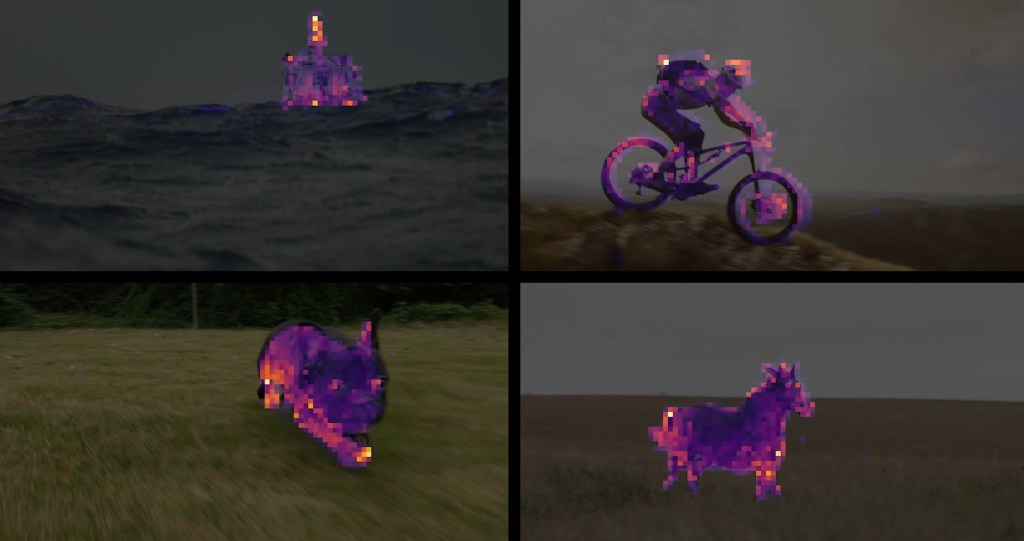Machine learning is capable of doing all sorts of things as long as you have the data to teach it how. That’s not always easy, and researchers are always looking for a way to add a bit of “common sense” to AI so you don’t have to show it 500 pictures of a cat before it gets it. Facebook’s newest research takes a big step toward reducing the data bottleneck.
The company’s formidable AI research division has been working for years now on how to advance and scale things like advanced computer vision algorithms, and has made steady progress, generally shared with the rest of the research community. One interesting development Facebook has pursued in particular is what’s called “semi-supervised learning.”
Generally when you think of training an AI, you think of something like the aforementioned 500 pictures of cats — images that have been selected and labeled (which can mean outlining the cat, putting a box around the cat or just saying there’s a cat in there somewhere) so that the machine learning system can put together an algorithm to automate the process of cat recognition. Naturally if you want to do dogs or horses, you need 500 dog pictures, 500 horse pictures, etc. — it scales linearly, which is a word you never want to see in tech.
Semi-supervised learning, related to “unsupervised” learning, involves figuring out important parts of a data set without any labeled data at all. It doesn’t just go wild, there’s still structure; for instance, imagine you give the system a thousand sentences to study, then showed it 10 more that have several of the words missing. The system could probably do a decent job filling in the blanks just based on what it’s seen in the previous thousand. But that’s not so easy to do with images and video — they aren’t as straightforward or predictable.
But Facebook researchers have shown that while it may not be easy, it’s possible and in fact very effective. The DINO system (which stands rather unconvincingly for “DIstillation of knowledge with NO labels”) is capable of learning to find objects of interest in videos of people, animals and objects quite well without any labeled data whatsoever.

It does this by considering the video not as a sequence of images to be analyzed one by one in order, but as a complex, interrelated set, like the difference between “a series of words” and “a sentence.” By attending to the middle and the end of the video as well as the beginning, the agent can get a sense of things like “an object with this general shape goes from left to right.” That information feeds into other knowledge, like when an object on the right overlaps with the first one, the system knows they’re not the same thing, just touching in those frames. And that knowledge in turn can be applied to other situations. In other words, it develops a basic sense of visual meaning, and does so with remarkably little training on new objects.
This results in a computer vision system that’s not only effective — it performs well compared with traditionally trained systems — but more relatable and explainable. For instance, while an AI that has been trained with 500 dog pictures and 500 cat pictures will recognize both, it won’t really have any idea that they’re similar in any way. But DINO — although it couldn’t be specific — gets that they’re similar visually to one another, more so anyway than they are to cars, and that metadata and context is visible in its memory. Dogs and cats are “closer” in its sort of digital cognitive space than dogs and mountains. You can see those concepts as little blobs here — see how those of a type stick together:

This has its own benefits, of a technical sort we won’t get into here. If you’re curious, there’s more detail in the papers linked in Facebook’s blog post.
There’s also an adjacent research project, a training method called PAWS, which further reduces the need for labeled data. PAWS combines some of the ideas of semi-supervised learning with the more traditional supervised method, essentially giving the training a boost by letting it learn from both the labeled and unlabeled data.
Facebook of course needs good and fast image analysis for its many user-facing (and secret) image-related products, but these general advances to the computer vision world will no doubt be welcomed by the developer community for other purposes.
Enhanced computer vision, sensors raise manufacturing stakes for robots as a service






























Comment